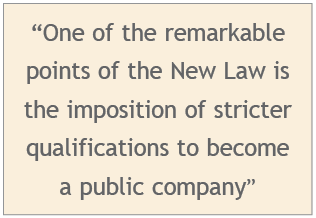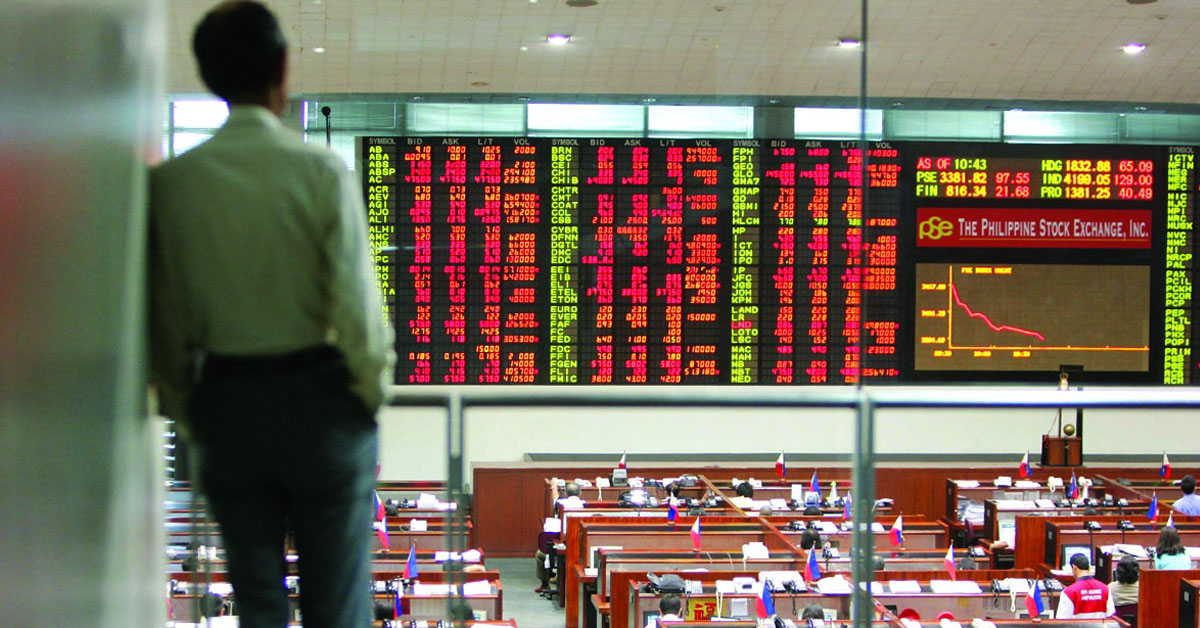
By Trang Nguyen, bizconsult Law Firm
In November 2019, the National Assembly passed the new Law on Securities No. 54/2019/QH14 (New Law), effective from January 1, 2021. The New Law will completely replace the current Law on Securities No. 70/2006/QH11 as amended by the Law No. 62/2010/QH12 (Current Law). The New Law is said to be a radical improvement to securities market regulations in Vietnam and is expected to overcome those shortcomings observed for the past 10 years.
One of the remarkable points of the New Law is the imposition of stricter qualifications to become a public company. In particular, in order to become a public company, the required minimum paid-up charter capital of a company will be VND30 billion (US$1.3m), in which at least 10 percent voting shares must be held by at least 100 shareholders other than major shareholders. The Current Law requires the minimum paid-up charter capital of a public company to be VND10 billion and held by 100 shareholders only. The current public company which fails to reach such conditions after the effective date of the New Law shall be reverted to be non-public. Alternatively, a non-public company may also become a public company after its successful initial public offering (IPO).
With respect to public offering, the New Law sets out separate conditions for an IPO and follow-on public offer, rather than the same conditions for both under the Current Law. For IPO, the conditions on charter capital, profit and accumulated loss before IPO and minimum voting shares to be offered in an IPO are more stringent than those provided in the Current Law. In particular:
- the company must have paid-up charter capital of at least VND30 billion (VND10 billion is required under Current Law);
- there must be profit in two preceding years (one year is required under Current Law), and no accumulated losses until the year of IPO;
- at least 15 percent of the company’s voting shares must be sold (or at least 10 percent with the company having charter capital of VND1,000 billion or more) to at least 100 investors other than major shareholders; and
- major shareholders must commit to hold at least 20 percent of the company’s charter capital within at least one year from the completion date of the IPO.

The subscription price shall be deposited on an escrow account during IPO process and be released only upon the completion of IPO. Furthermore, the company’s shares are also demanded to be listed on the Stock Exchange after the IPO. For follow-on public offers, the following conditions are required:
- the company must have paid-up charter capital of at least VND30 billion;
- there must be profit in the preceding year, and no accumulated losses until the year of the follow-on public offer; and
- the total par value of offered shares shall not exceed the total par value of outstanding shares, excepting the case that the unsold shares are guaranteed to be subscribed by an underwriter.
If a public offering is to raise capital for a project, at least 70 percent of the total offered shares must be issued. The company must prepare a plan to make up the shortfall of the capital intended to be raised from such public offering for the project’s implementation.
Regarding private placement, only strategic investors and professional securities investors are allowed to participate in the private placement of a public company under the New Law. The lock-up period will be three years for strategic investors, or one year in the case of professional securities investors, except for transfers among professional investors or as ruled by the court/arbitration or in the case of inheritance. As compared with the Current Law, the scope of professional investors under the New Law covers further, among others, companies with charter capital over VND100 billion, listed companies, individuals having a securities practice certificate, individuals having a portfolio of listed shares valued at VND2 billion, or individuals having yearly taxable income of VND1 billion or more.
The New Law also introduces certain new regulations on listing and registration for trading, securities depository, registration of securities, securities settlement and clearance, information disclosure, protection of client’s assets, securities investment funds and sanctions.

Hanoi:
T: (84) 0 24 3933 2129
F: (84) 0 24 3933 2130
E: info-hn@bizconsult.vn
Ho Chi Minh:
T: (84) 0 28 3910 6559
F: (84) 0 28 3910 6560
E: info-hcm@bizconsult.vn
M: (84) 98 860 4260
E: trangnt@bizconsult.vn

























 Nguyen Anh Tuan
Nguyen Anh Tuan




